

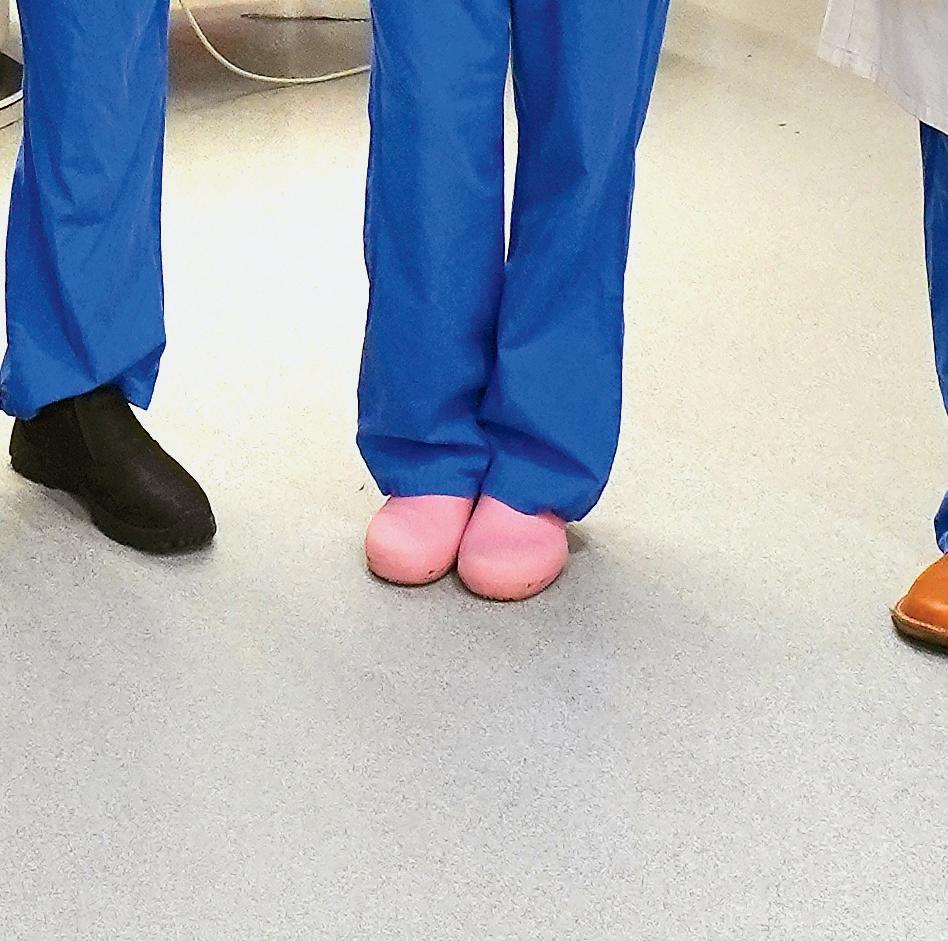
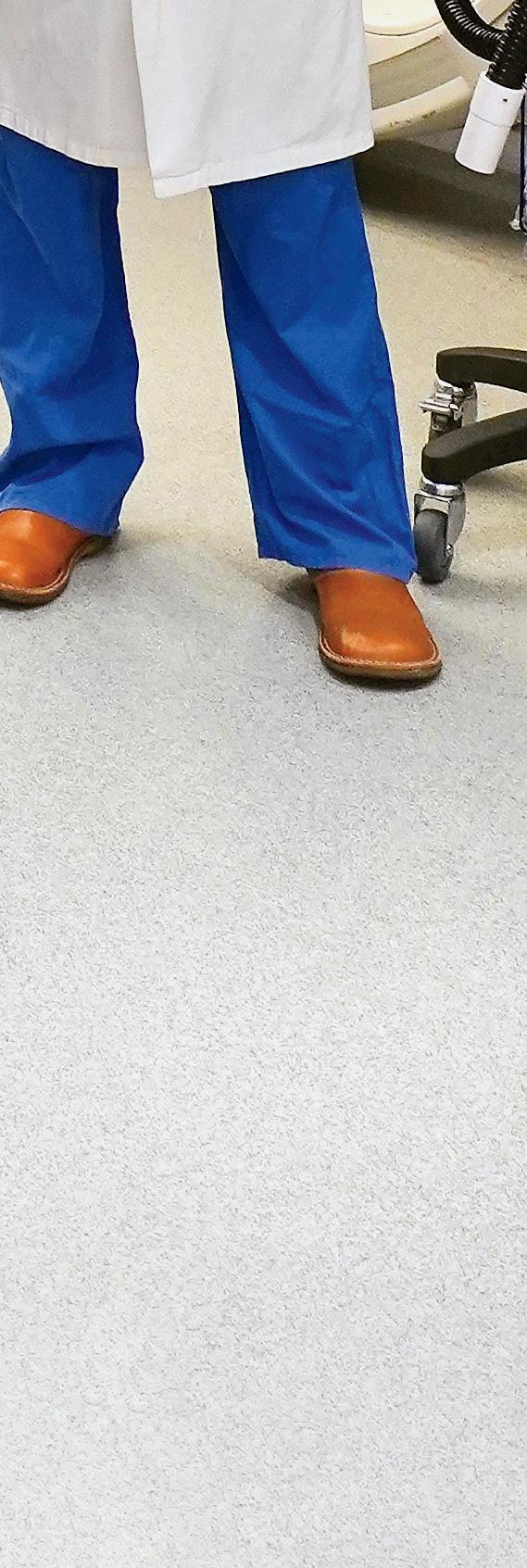




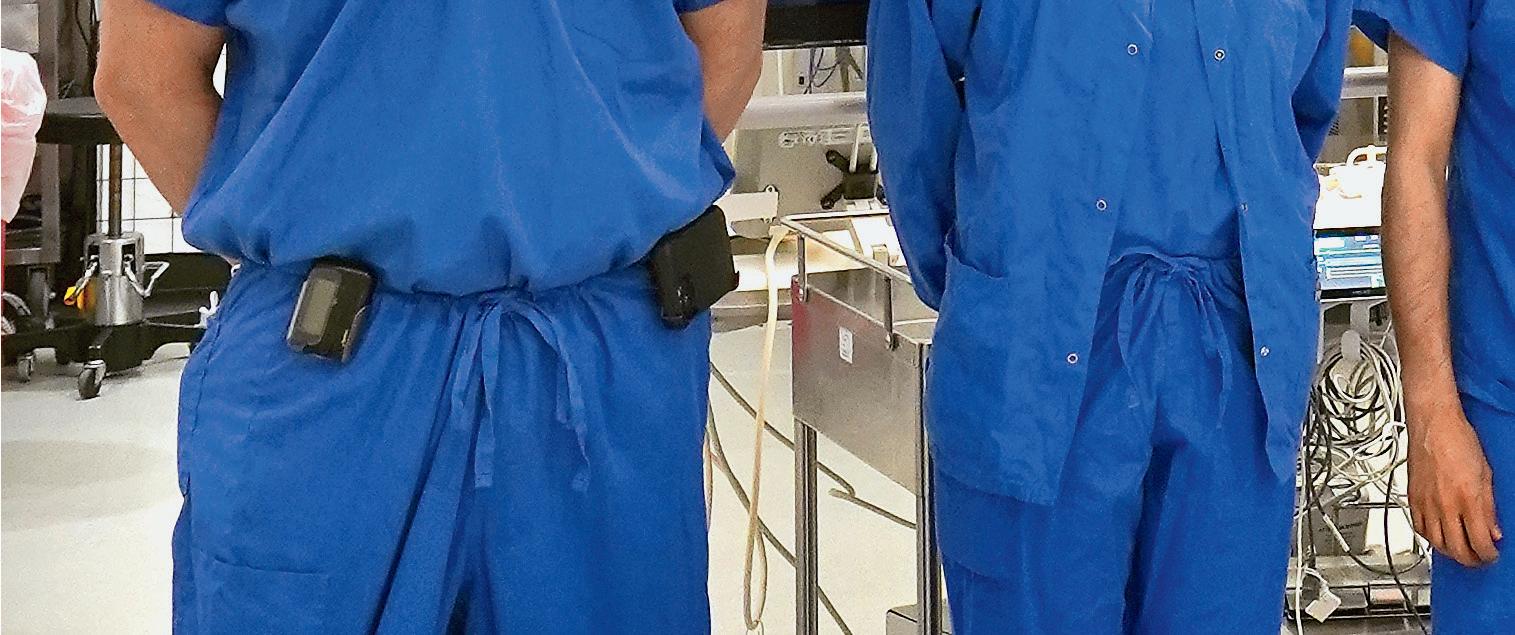
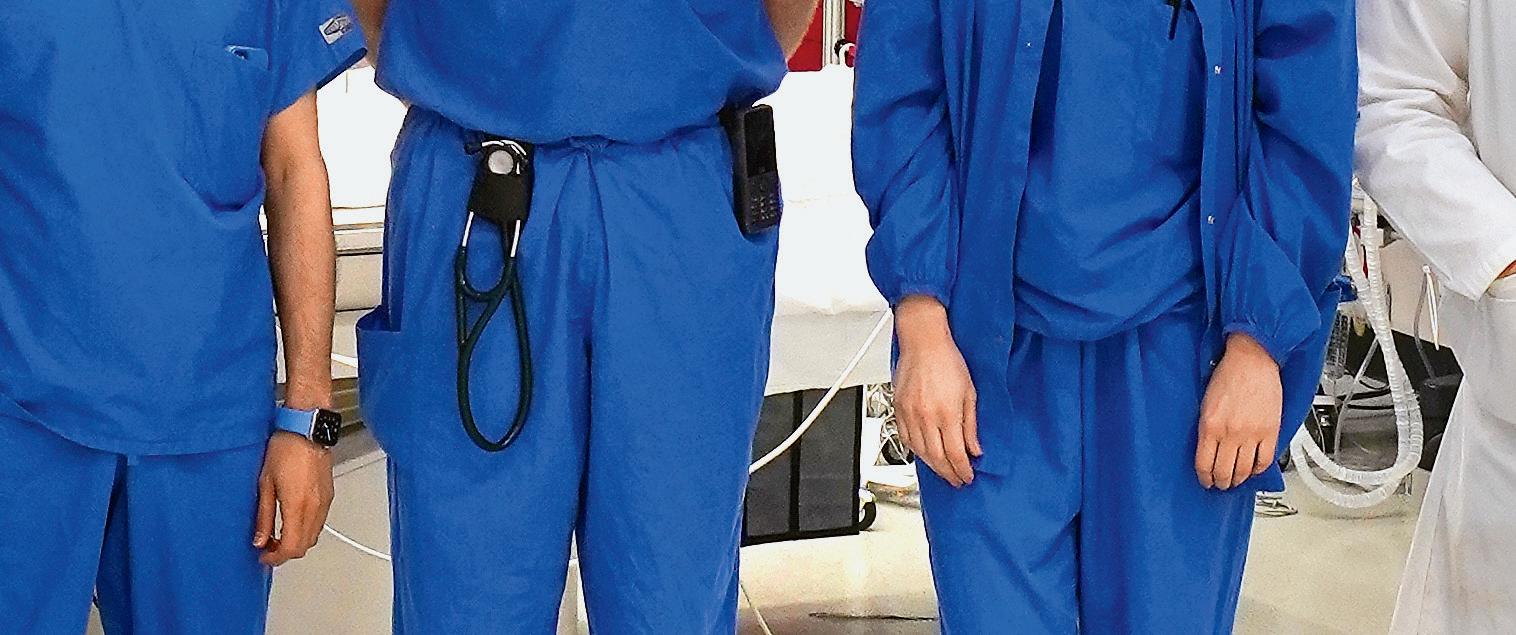
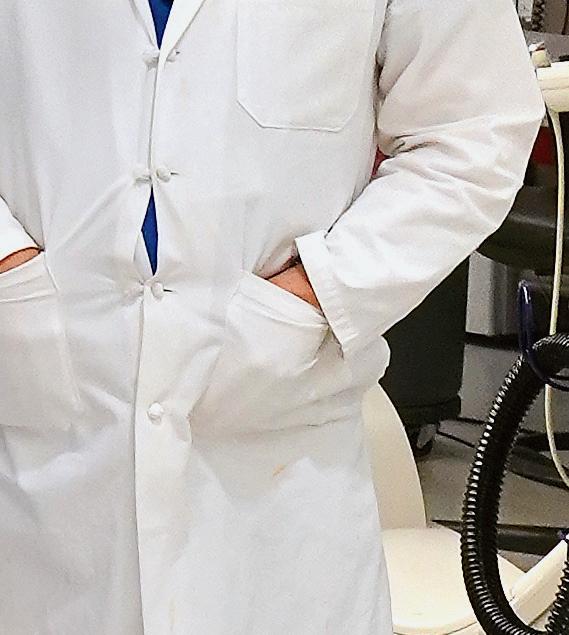

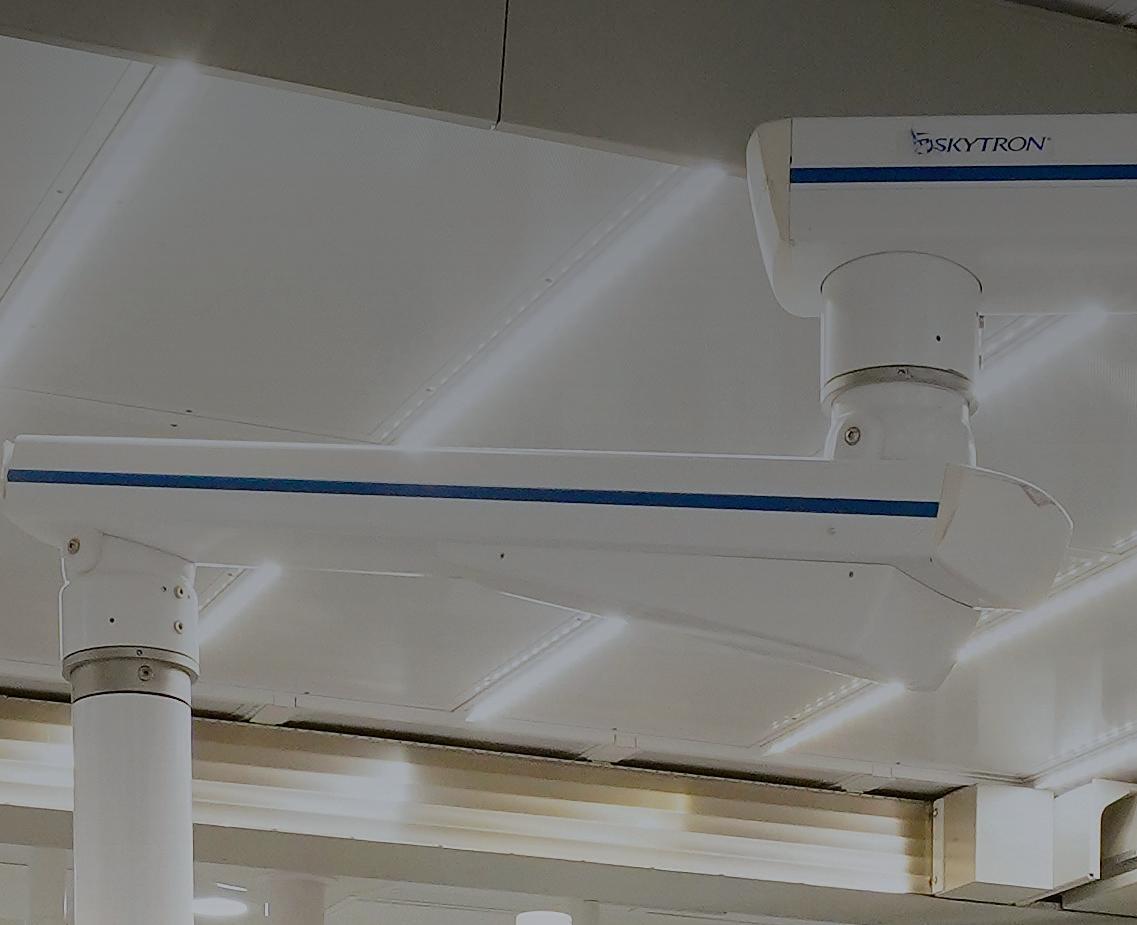

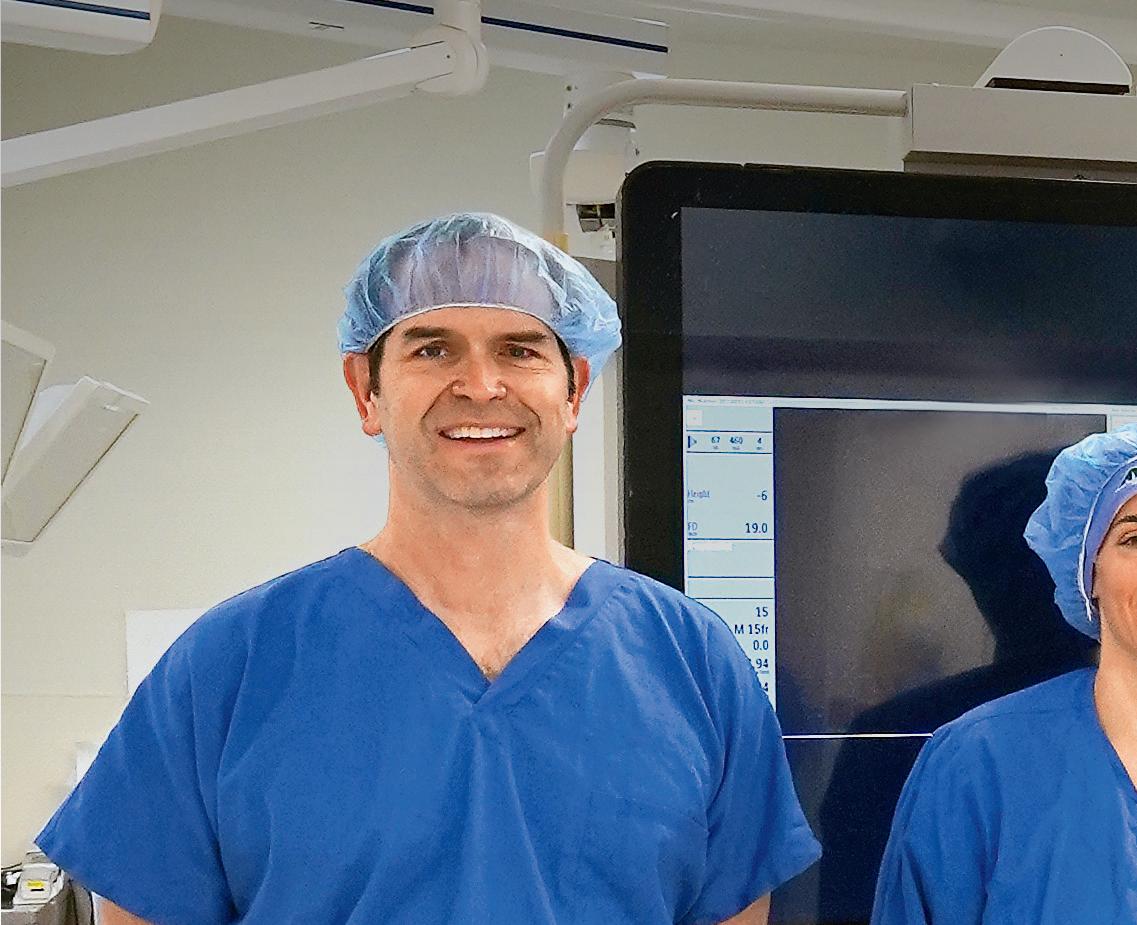
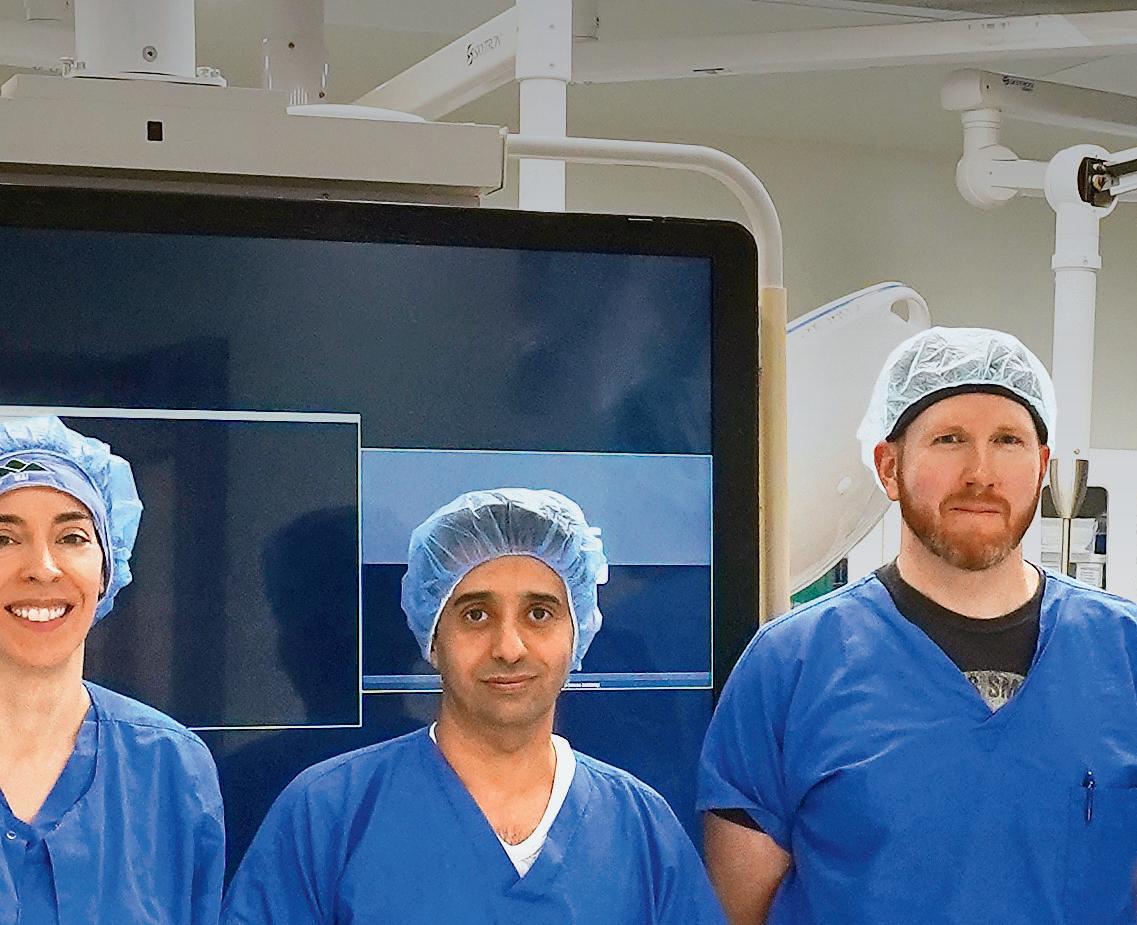
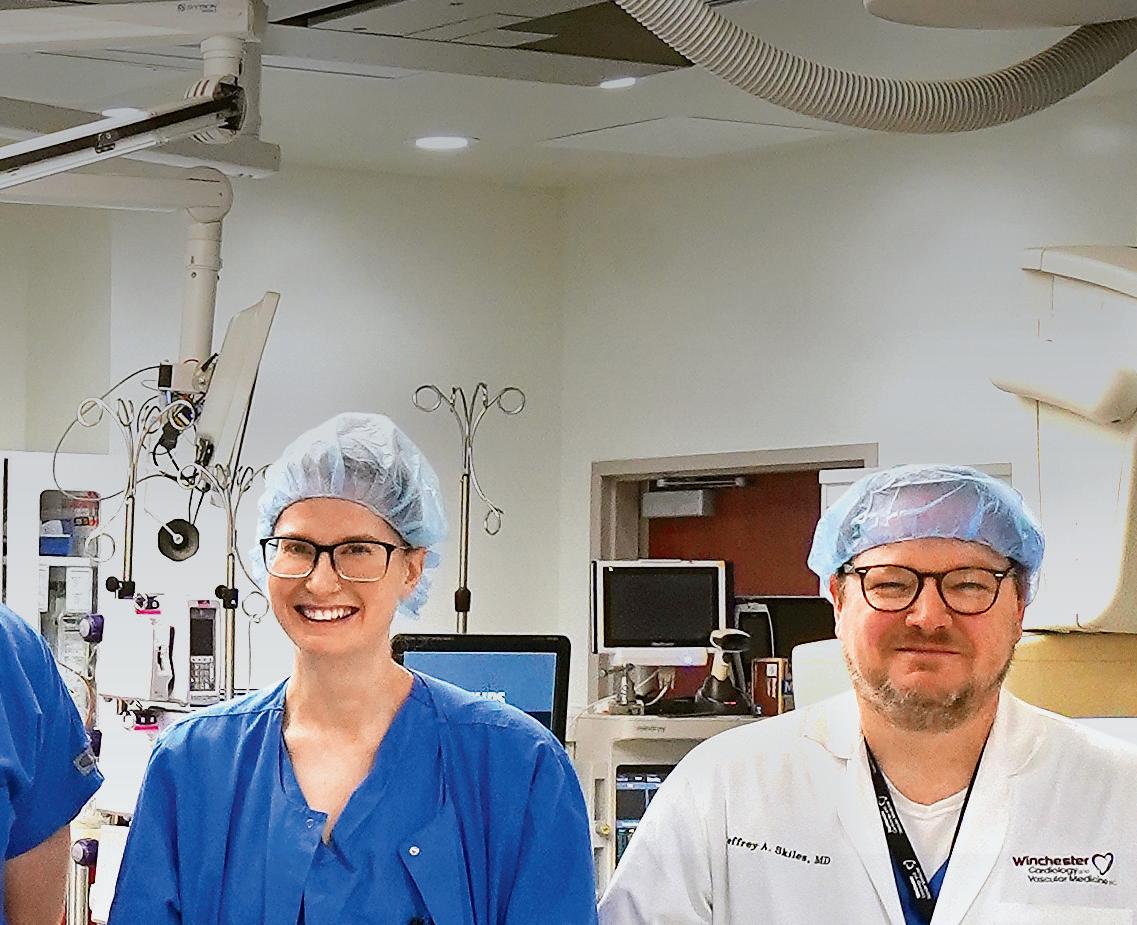


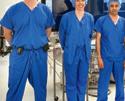
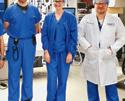


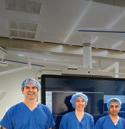
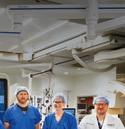


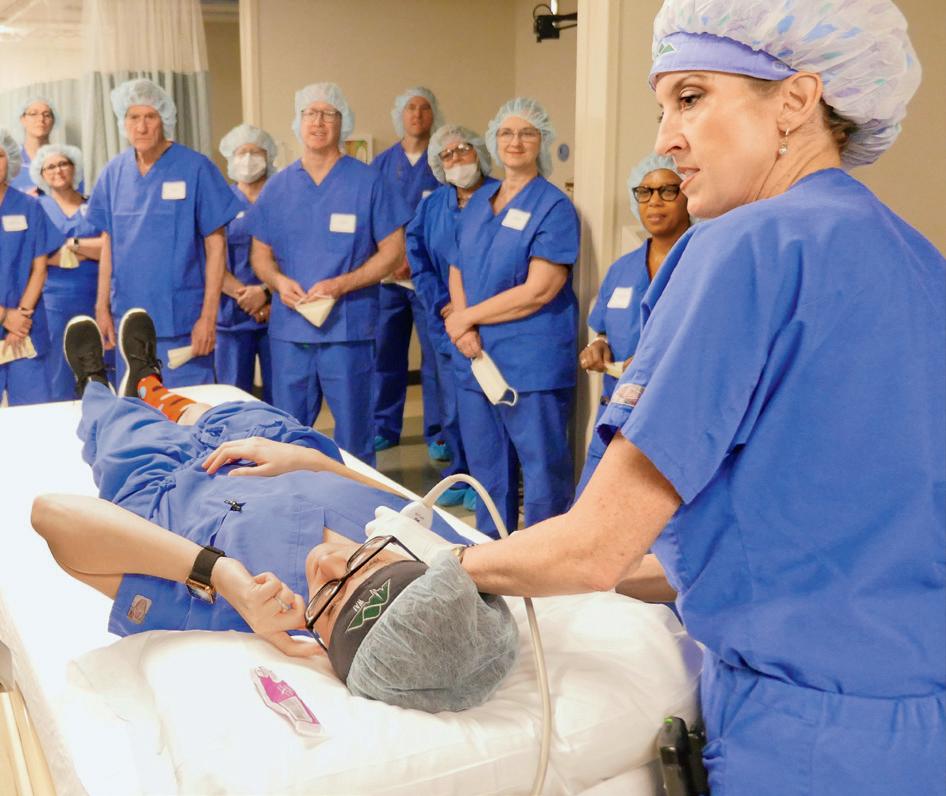



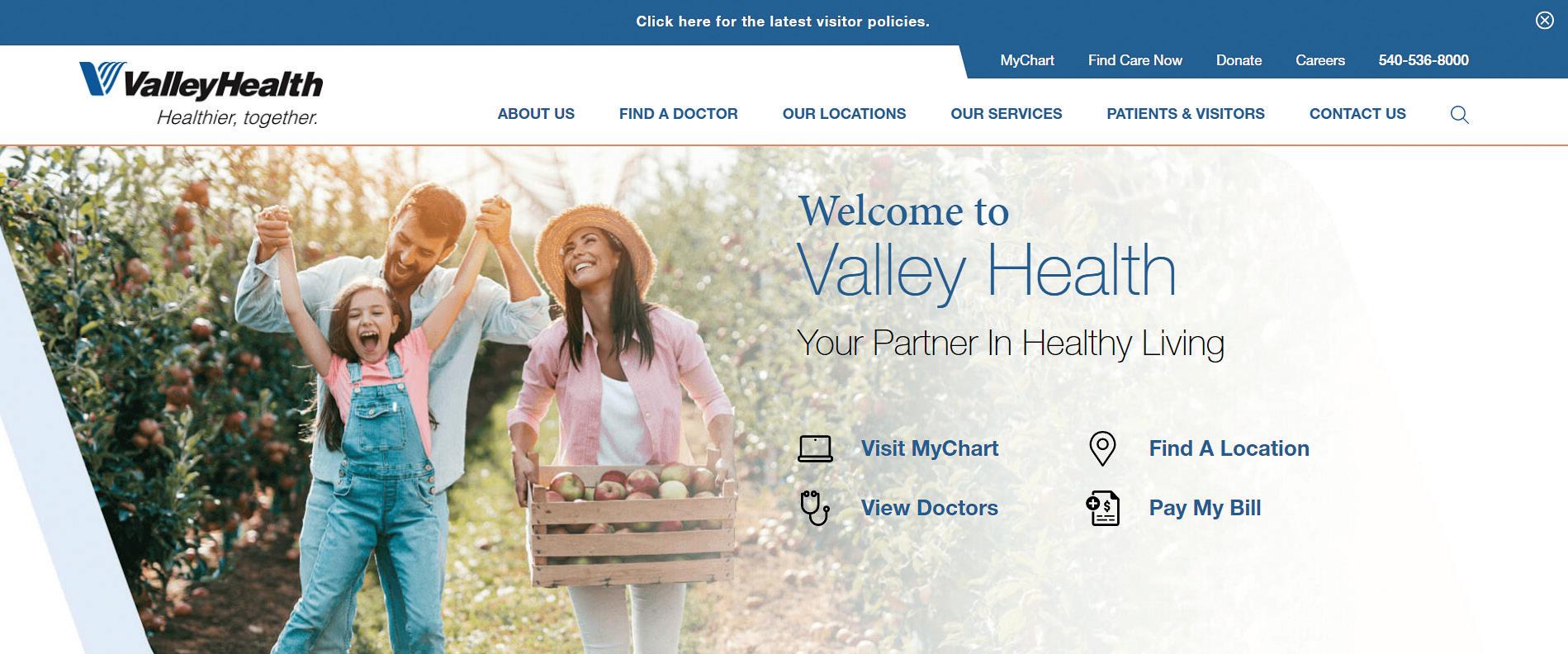
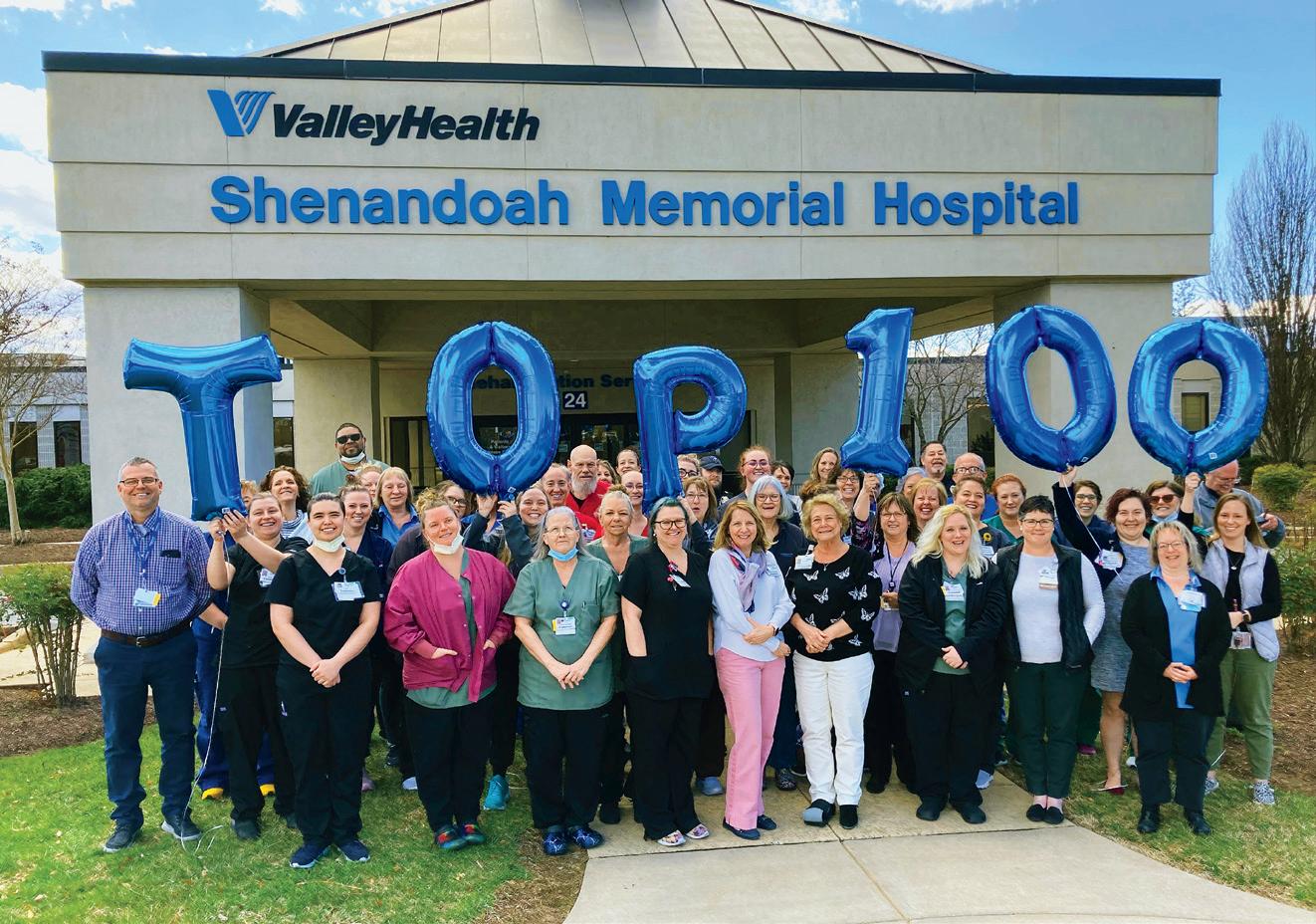
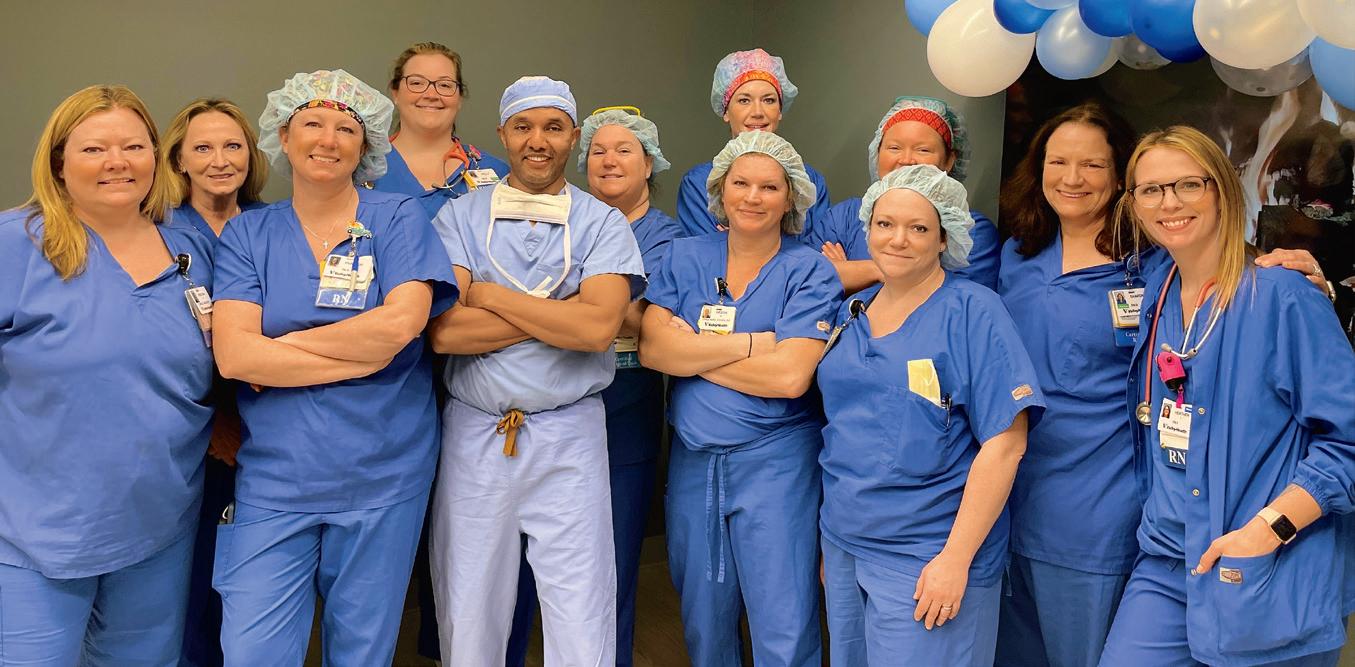




































A revolutionary imaging agent helps improve surgical outcomes
Valley Health neurosurgeons are deploying a first-of-its-kind imaging agent that lights up high-grade gliomas, making it possible to remove significantly more of this common and life-threatening brain cancer for better outcomes.
“We give Gleolan as an oral medication a few hours before surgery,” explains Joshua Prickett, DO, FACOS, of Virginia Brain & Spine Center | Valley Health. “It makes the cancer cells glow bright pink. This allows a higher chance of removing all of the tumor, which carries with it better outcomes.”
Gliomas begin in the cells that nourish, insulate and support the brain. Fast-growing high-grade gliomas, including glioblastomas, are the most common malignant brain tumors in adults, according to the American Cancer Society. After a glioma is mapped with brain imaging, surgery is usually the first step in treatment. But under normal operating room lights, this cancer looks identical to normal brain tissue even when magnified by an operating microscope, Dr. Prickett says. It also sends tiny extensions of tumor deep into surrounding healthy tissue. Before Gleolan, this made the surgeon’s goal of removing a majority of the tumor especially challenging. With Gleolan, “the difference is night and day,” Dr. Prickett says. Lit with a blue-light headlamp equipped with a special filter during surgery, the cancer shines pinkish-red while normal brain looks blue. “This allows our team to better differentiate tumor from surrounding brain tissue, which enables us to better preserve normal tissues while removing more of the tumor. This can improve the length of survival. One study demonstrated twice the rate of survival at six months without cancer progression with use of imaging agents for tumor removal.”
Gleolan, the only FDA-approved product for illuminating glioma, is a naturally occurring substance in plants and animals called 5-aminolevulinic acid. Because it temporarily increases photosensitivity, patients who receive it must avoid direct sunlight for the next 48 hours, Dr. Prickett says. Studied in over 100,000 people, it has minimal risk of side effects.
A board-certified neurosurgeon with expertise in neuro-oncology, Dr. Prickett first used Gleolan during his fellowship at Swedish Neuroscience Institute in Seattle. “When I came to Winchester, I helped organize training for its safe use with the manufacturer, the hospital staff and our pharmacists,” he says. “We are one of only a few facilities in the region to use this technology. Our team has used Gleolan on several patients thus far with good results and a better resection than we could have achieved without these tools.”
Visit
“
[Gleolan] makes the cancer cells glow bright pink. This allows a higher chance of removing all of the tumor, which carries with it better outcomes.”
—JOSHUA PRICKETT, DO, FACOS






















Early detection can make all the difference for patients with this all-too-common cancer
Colorectal cancer—America’s second-leading cause of cancer deaths—isn’t just a concern for older adults. Rates are rising quickly in people younger than 55, says Grace Shih, MD, a board-certified gastroenterologist with Valley Health and Winchester Gastroenterology Associates. Your best move: Start colorectal cancer screening at age 45 and talk with your doctor about earlier checks if you’re at high risk.
“The earlier we catch colorectal cancer, the better,” Dr. Shih says. “The five-year survival rate for stage 1 colorectal cancer is over 90 percent, but it drops to 70 percent or lower for more advanced stages. We can catch this cancer earlier with a colonoscopy, by finding and removing growths called polyps before they make a malignant transformation into cancer.”
In 2021, the U.S. Preventive Services Task Force lowered the recommended starting age for screening to 45 for all Americans at average risk for colorectal cancer. (Before that, it was age 50 for most.) “A lot of people don’t know the screening age has changed,” says Sophia Villanueva, MD, a fellowship-trained colorectal surgeon at Valley Health Surgical Oncology. “Many think this is a disease of the elderly, but right now one in five people diagnosed with colorectal cancer are between 20 and 54.”
If you have a family history of this cancer, your doctor may suggest screening at whichever comes first: age 40, or 10 years before the age when a first-degree relative, such as parent or sibling, was diagnosed with colorectal cancer, Dr. Shih says. Adults age 76 and older should discuss their need for screening with their doctor.

Don’t wait for symptoms before getting tested. “Colorectal cancer usually has no symptoms in its early stages,” Dr. Shih notes. “Everyone should be screened.” However, if you do notice changes in your bowel habits, blood in or on your stool, abdominal aches and pains, or unexplained weight loss, see your doctor. “The problem with colorectal cancer is that the symptoms are very vague and can mimic other conditions,” Dr. Villanueva says. “ Some people assume that their bleeding is from hemorrhoids or that their bloating and constipation are from irritable bowel syndrome and do not get checked. This is a mistake. It is important to tell your doctor about your symptoms and ask about a colorectal cancer screening.”
Colorectal screening is easier than ever, with more options and simpler bowel prep. What to know:
• Colonoscopy is the gold-standard screening test. During this procedure, a doctor carefully examines your colon with a light and camera while you’re under mild sedation. “Colonoscopy is the only screening check that visualizes the colon,” Dr. Shih says. “And it’s the only screening that can detect and remove precancerous polyps during the procedure.”

If your colonoscopy finds no signs of cancer or precancers, you’ll most often need your next one in 10 years. What to know: “Bowel preparation for colonoscopy doesn’t require drinking as much liquid as in the past,” Dr. Shih explains. “There’s even a pill form if you don’t like the taste of prep fluids. You’ll still have to drink water with it so that it’s effective, of course.”

• Stool tests are a noninvasive alternative. If you can’t or are unwilling to have a colonoscopy, several stool tests—which you take every one to three years,
depending on the type—are options recommended by the U.S. Preventive Services Task Force. These include the multi-target stool DNA test (mt-sDNA) Cologuard, the guaiac-based fecal occult blood test (gFOBT) and the highly sensitive fecal immunochemical test (FIT). What to know: “People should understand that if you have a positive result on a fecal test, you will still need a colonoscopy,” Dr. Shih notes.
If you are diagnosed with colorectal cancer, treatment options at Valley Health include minimally invasive robotic surgery, possibly in addition to chemotherapy, and radiation for some advanced colon and rectal cancer.
“We perform the surgery through small incisions resulting in less pain and blood loss, resulting in a faster recovery,” Dr. Villanueva says.
“Patients go home from the hospital two to three days after surgery and return to normal activities in as little as two to four weeks. Our patients have very good outcomes. Winchester Medical Center has been recognized in 2022-2023 as a high-performing hospital in colon cancer surgery by U.S. News & World Report. This reflects significantly better than the national average for patient outcomes. For rectal cancer, Valley Health Winchester Medical Center is one of the few centers in the U.S. that has a rectal cancer program accredited by the American College of Surgeons. This means we have achieved high standards set by ACS for the comprehensive multidisciplinary care of rectal cancer.”
Meanwhile, you can lower your risk for colorectal cancer with a healthy lifestyle. “Getting regular exercise, not smoking, and eating less animal protein and less processed food all help,” Dr. Shih says. Combined with screening, it’s a powerful package for preventing a common cancer. “I tell my patients, getting screened for cancer is not only a gift to yourself,” she says, “it’s also a gift to your family.”
Visit valleyhealthlink.com/colorectalcancer to learn more.





